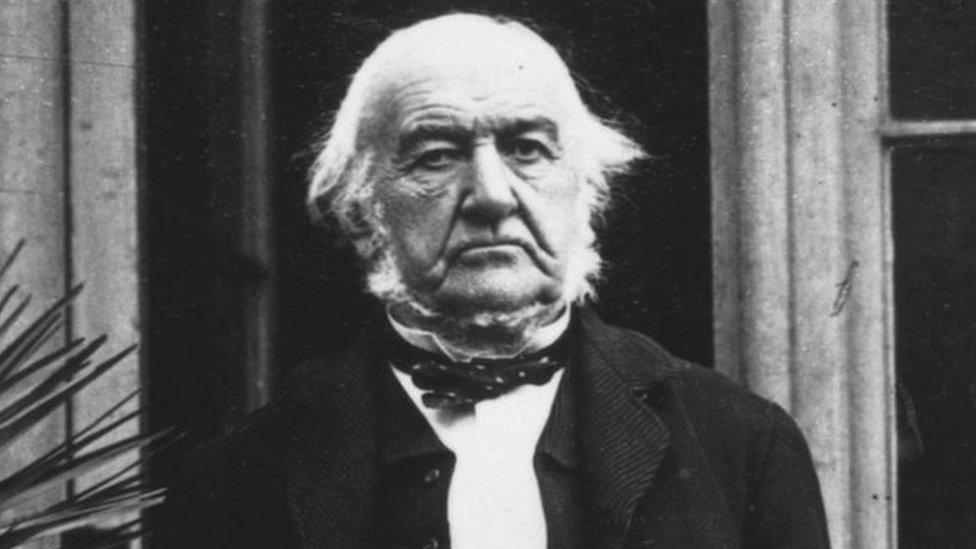William Gladstone's family apologises for role in slave trade
- Published
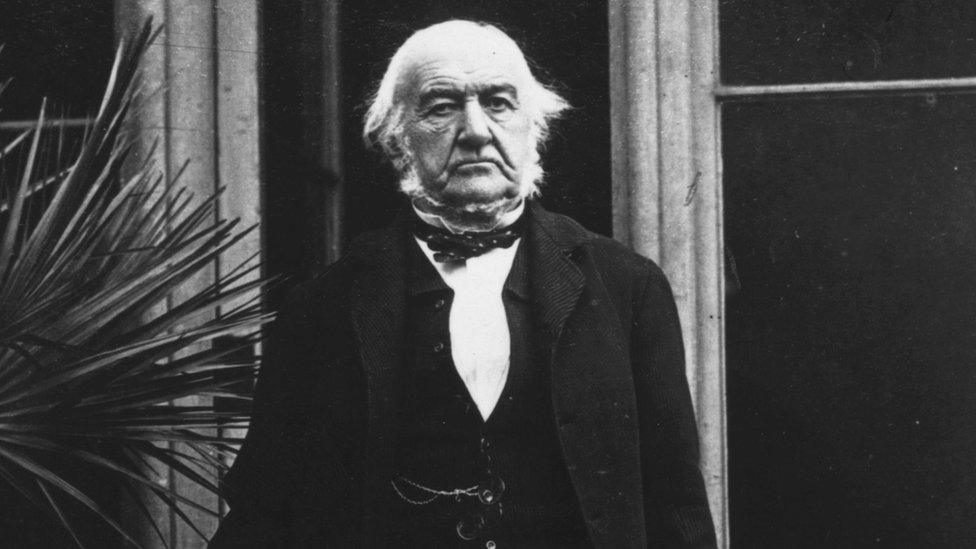
William Gladstone died at Hawarden Castle in 1898
A descendant of William Gladstone has visited Guyana to apologise for his family's part in the slave trade.
The 19th Century prime minister was the son of John Gladstone, one of the largest slave owners in the British West Indies.
Charlie Gladstone, the great-great-great grandson of John, spoke at the University of Guyana on Friday.
But his speech was interrupted by protesters with placards at the back of the room.
Pictures posted on social media by local press appeared to show about a dozen demonstrators holding up handwritten signs calling for reparations.
'Deep shame'
Mr Gladstone, whose family's ancestral home is the Hawarden estate, in Flintshire, proceeded to read from a prepared statement despite the demonstration in the George Walcott lecture theatre.
"Slavery was a crime against humanity and its damaging impact continues to be felt across the world today," he said.
"It is with deep shame and regret that we acknowledge our ancestors involvement in this crime, and with heartfelt sincerity that we apologise to the descendants of the enslaved in Guyana.
"In so doing we acknowledge slavery's continuing impact on the daily lives of many."
He added that it was too late to change history.
"But we believe we can have an impact on the world in which we live, and in apologising for the actions of our ancestors we hope to work toward a better future."
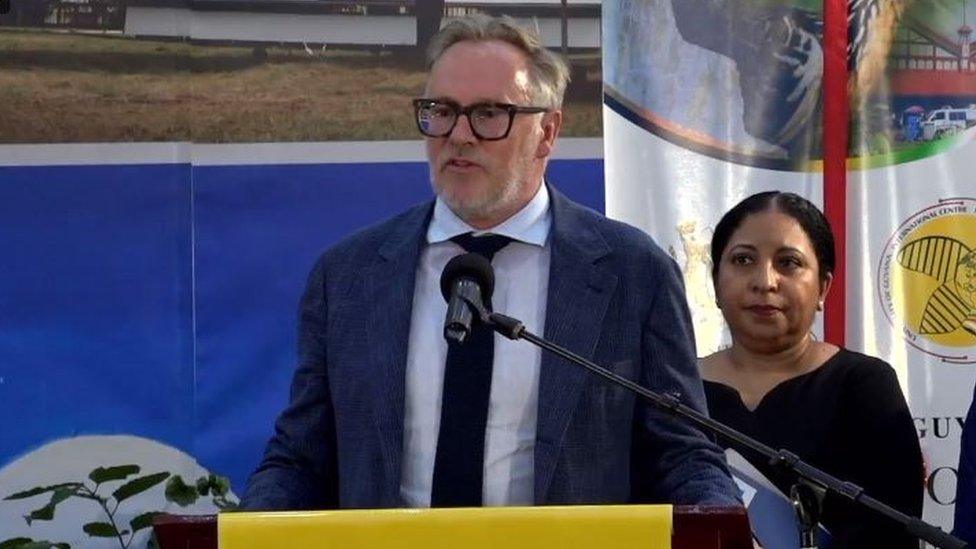
Charlie Gladstone apologised for his family's role in the slave trade
He urged the UK government to enter discussions with The Caribbean Community (Caricom), an intergovernmental organisation of 15 states through the Americas and Atlantic.
"We also urge other descendants of those who benefited from slavery to open conversations about their ancestors' crimes and what they might be able to do build a better future," Mr Gladstone said.
Mr Gladstone's visit coincided with the 200th anniversary of the 1823 rebellion in Demerara, a British colony that later became part of Guyana, which started on one of Gladstone's plantations.
Some historians argue its violent suppression had a role in bringing an end to slavery.
The Atlantic slave trade saw millions of Africans enslaved and forced to work, especially on plantations in the Caribbean and Americas, for centuries from about 1500.
The British government and the monarchy were prominent participants in the trade, alongside other European nations.
Britain also had a key role in ending the trade through Parliament's passage of a law to abolish slavery in 1833.
Rishi Sunak has refused to apologise for the UK's role in slavery.
Asked at Prime Minister's Questions in April by Labour MP Bell Ribeiro-Addy whether he would offer a "full and meaningful apology", Mr Sunak said he would not, and that it was important to "have a society that is inclusive and tolerant of people from all backgrounds".
"Trying to unpick our history is not the right way forward and is not something we will focus our energies on," he said.
- Published11 May 2022
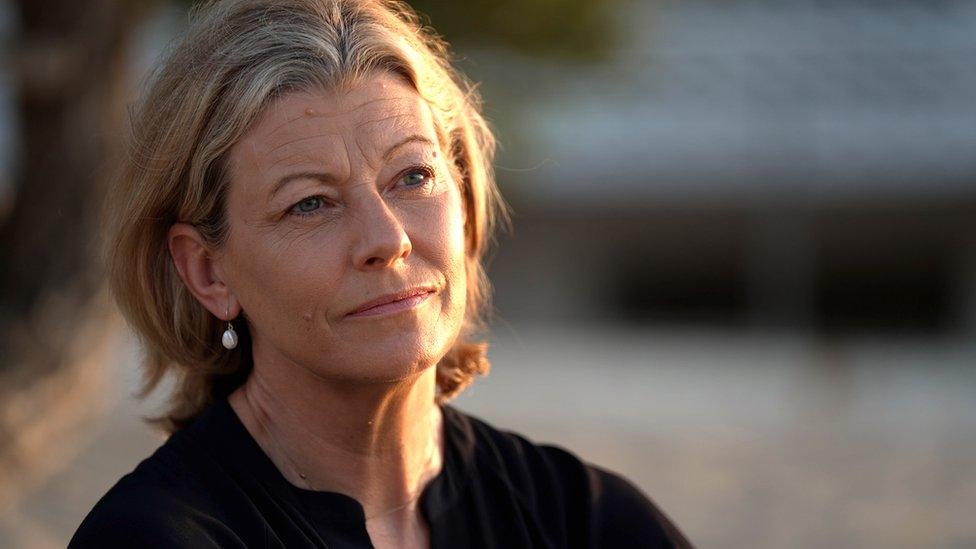
- Published11 June 2020
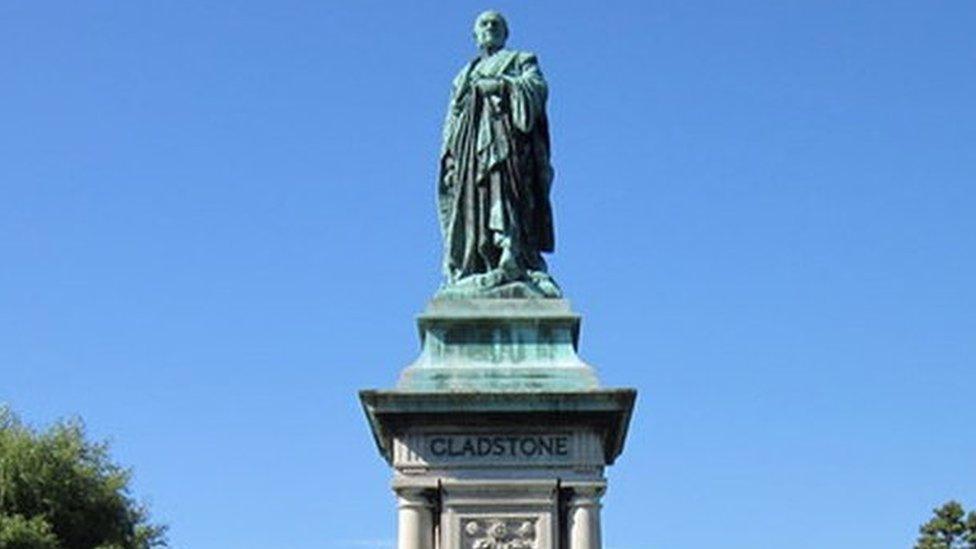
- Published10 June 2020
